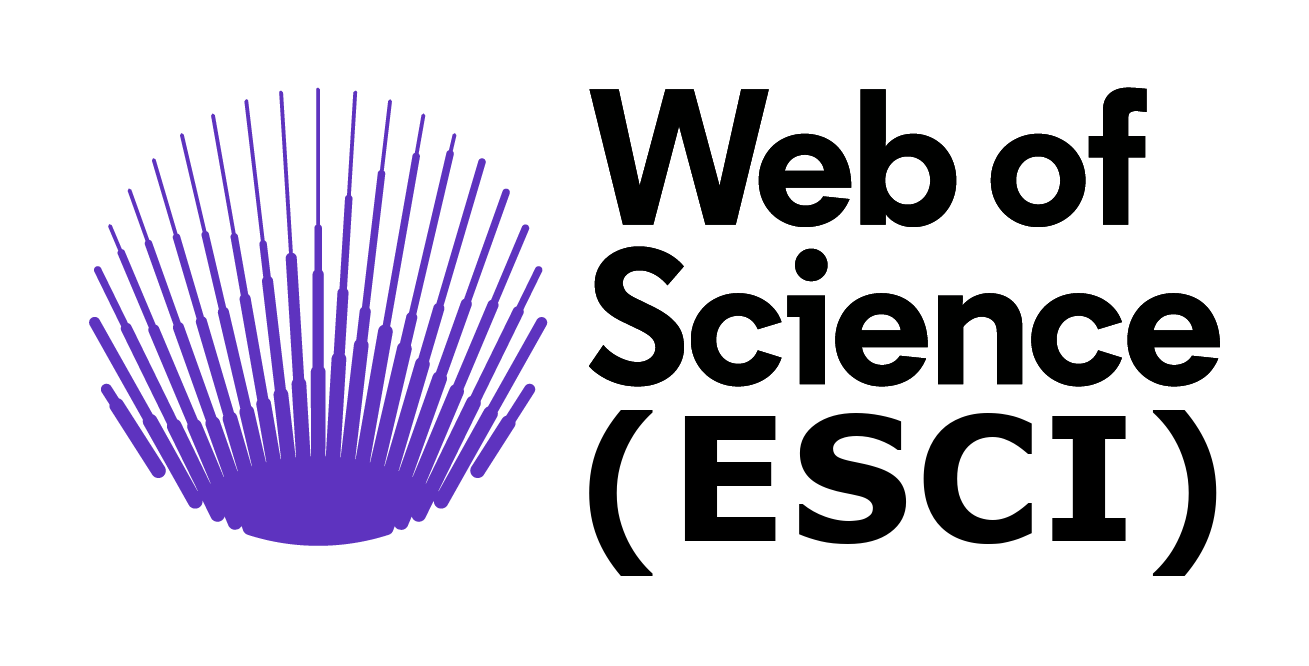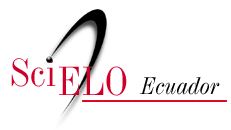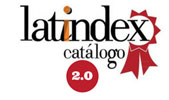Arquitecturas de sistemas de captación de energía
DOI:
https://doi.org/10.29019/enfoqueute.777Palabras clave:
recolección de energía, arquitecturas, energía de radiofrecuencia, antena, acoplamientoResumen
El presente artículo desarrolla una la revisión literaria sobre las arquitecturas de sistemas de captación de energía, identificando parámetros como: frecuencia, tipo de antena, arquitectura (elementos), entre otros. La metodología tiene cuatro etapas: a) búsqueda de documentación en la que se obtuvieron 10 sistemas, los cuales fueron denominados con la letra “S” acompañada del número de artículo; b) lectura de los documentos científicos; c) extracción de información y arquitectura de los sistemas en se detallan las etapas de cada sistema (las cuales varían de 2 a 4), las frecuencias de trabajo (300 KHz hasta 3.43 GHz, siendo la de 2.45 GHz la más empleada en sistemas para recolección de energía de radiofrecuencia). Además de utilizar, en ciertos sistemas, circuitos multiplicadores y rectificadores en diferentes configuraciones: media onda y onda completa, para posteriormente ser almacenadas en baterías o directamente aplicadas en dispositivos; d) documentación de la información extraída. Finalmente, completada la revisión literaria, se observó que en la mayoría de los artículos los sistemas tienen 3 etapas: antena, acoplamiento y rectificación, que el sistema transforma la energía recibida (corriente alterna) en corriente continua y que su funcionamiento varía en intervalos de frecuencia de 1.8 a 2.4 GHz, dependiendo de la configuración de cada sistema. Así también, el producto obtenido es una APP de consulta con un menú de selección de las diferentes arquitecturas investigadas, lo cual es un aporte muy beneficioso para los investigadores que deseen trabajar en esta área.
Descargas
Citas
Aboueidah, H., et al. (2017). "Characterization of RF energy harvesting at 2.4 GHz". 24th IEEE International Conference on Electronics, Circuits and Systems (ICECS): 446-449. http://doi.org/10.1109/IECS.2017.8292118
Abouzied, M.A., Ravichandran, K.; Sánchez-Sinencio, E. (2017). A Fully Integrated Reconfigurable Self-Startup RF Energy-Harvesting System With Storage Capability. IEEE Journal of Solid-State Circuits 52(3): 704-719. http://doi.org/10.1109/JSSC.2016.2633985
Al-Azawy, M.M.; Sari, F. (2019). Analysis of Dickson Voltage Multiplier for RF Energy Harvesting.1st Global Power, Energy and Communication Conference (GPECOM): 10-14. http://doi.org/10.1109/GPECOM.2019.8778492
Arrawatia, M.; Baghini, M.S.; Kumar, G. (2015). Differential Microstrip Antenna for RF Energy Harvesting. IEEE Transactions on Antennas and Propagation 63(4): 158-1588. http://doi.org/10.1109/TAP.2015.2399939
Bai, X.; Ali, T.; Xu, L. (2019). A Dual-frequency Slotted CPW Antenna for 2.45/5.8 GHz RF Energy Harvesting Based on PVDF. International Applied Computational Electromagnetics Society Symposium. China (ACES): 1-2. http://doi.org/10.23919/ACES48530.2019.9060561
Cansiz, M.; Altinel, D.; Kurt, G.K. (2019). Efficiency in RF energy harvesting systems: A comprehensive review. Energy 174: 292-309. http://doi.org/10.1016/j.energy.2019.02.100
Chaudhary, S.; Johari, R.; Bhatia, R.; Gupta, K.; Bhatnagar, A. (2019). CRAIoT: Concept, Review and Application(s) of IoT. 4th International Conference on Internet of Things: Smart Innovation and Usages (IoT-SIU): 1-4. http://doi.org/10.1109/IoT-SIU.2019.8777467
Chouhan, S.S.; Halonen, K. (2014). Voltage multiplier circuit for UHF RF to DC conversion for RFID applications. NORCHIP: 1-4. http://doi.org/10.1109/NORCHIP.2014.700471
Chouhan, S.S.; Nurmi, M.; Halonen. K. (2016). Efficiency enhanced voltage multiplier circuit for RF energy harvesting. Microelectronics Journal 48: 95-102. http://doi.org/doi:10.1016/j.mejo.2015.11.012
Dardeer, O.M.A.; Elsadek, H.A.; Abdallah, E.A.; Elhennawy, H.M. (2019). 4x4 Circularly Polarized Antenna Array for Ambient RF Energy Harvesting. IEEE International Symposium on Antennas and Propagation and USNC-URSI Radio Science Meeting: 1175-1176. http://doi.org/10.1109/APUSNCURSINRSM.2019.8888857
Eid, A.; Constantine, J.; Tawk, Y.; Ramadan, H.; Abdalah, M.; Elhajj, R.; Awad, R.; Kasbah, B. (2017). An efficient RF energy harvesting system. 11th EUCAP: 896-899. http://doi.org/10.23919/EuCAP.2017.7928573
Elsheakh, D.N. (2019). Broadband Dual Linear Polarized (DLP) Antenna Array for Energy Harvesting System. IEEE International Symposium on Antennas and Propagation and USNC-URSI Radio Science Meeting: 1353-1354. http://doi.org/10.1109/APUSNCURSINRSM.2019.8888786
Garg, N.; Garg, R. (2017). Energy harvesting in IoT devices: A survey. International Conference on Intelligent Sustainable Systems (ICISS): 127-131. http://doi.org/10.1109/ISS1.2017.8389371
Gomez D.L. (2020). Caracterización experimental de una pmu (Power Management Unit) para aplicaciones de Energy Harvesting (EH) (Tesis de grado) Universitat Politècnica de Catalunya. https://upcommons.upc.edu/handle/2117/329335
González, L.; Osiris, S.; Laguía, D.; Gesto, E.; Hallar, K. (2020). Internet del futuro- estudio de tecnologías IoT. ICT-UNPA 12(3): 105-137. http://doi.org/10.22305/ict-unpa.v12.n3.744
Gosset, G.; Flandre, D. (2011). Fully-Automated and Portable Design Methodology for Optimal Sizing of Energy-Efficient CMOS Voltage Rectifiers. IEEE Journal on Emerging and Selected Topics in Circuits and Systems 1(2): 141-149. http://doi.org/10.1109/JETCAS.2011.2158357
Gudan, K.; Chemishkian, S.; Hull, J.J.; Thomas, S.J.; Ensworth, J.; Reynolds, M.S. (2014). A 2.4GHz ambient RF energy harvesting system with −20dBm minimum input power and NiMH battery storage. IEEE RFID-TA: 7-12. http://doi.org/10.1109/RFID-TA.2014.6934191
Guerrero, C. A. (2016). Sistema de recolección de energía (Energy Harvesting) que emplea la corriente corona y señales de alta frecuencia (tesis de Maestría). Universidad Nacional de Colombia, Colombia. https://repositorio.unal.edu.co/handle/unal/59817
Gupta, A.K.; Johari, R. (2019). IOT based Electrical Device Surveillance and Control System. 4th International Conference on Internet of Things: Smart Innovation and Usages (IoT-SIU).1-5. http://doi.org/10.1109/IoT-SIU.2019.8777342
Haddad, P.; Gosset, G.; Raskin, J.; Flandre, D. (2014). Efficient ultra low power rectification at 13.56 MHz for a 10 µA load current. SOI-3D-Subthreshold Microelectronics Technology Unified Conference (S3S): 1-2. http://doi.org/10.1109/S3S.2014.7028220
Hamza, T.; Adel, B.; Reda, B.M. (2020). A Low-Cost Elliptical Triple-Band Antenna for RF Energy Harvesting Applications. 5th International Conference on Renewable Energies for Developing Countries (REDEC): 1-3. http://doi.org/10.1109/REDEC49234.2020.9163859
HarshaVardhan, B.; Jagadeesh, R.; Prasad, C.; Natarajamani, S. (2019). Design of Rectifier at ISM Band for RF Energy Harvesting of Low Powers. International Conference on Communication and Signal Processing (ICCSP): 0282-0285. http://doi.org/10.1109/ICCSP.2019.8697979
Jabbar, H.; Song, Y.S.; Jeong, T.T. (2010). RF energy harvesting system and circuits for charging of mobile devices. IEEE Transactions on Consumer Electronics 56(1): 247-253. http://doi.org/10.1109/TCE.2010.5439152
Kanaya, H. (2014) Multi-band miniaturized slot antenna with multi-band impedance matching circuit. Proceedings of 2014 3rd Asia-Pacific Conference on Antennas and Propagation: 551-554. http://doi.org/10.1109/APCAP.2014.6992552
Khan, M.S. y Deng, H. (2016). Design and implementation of a highly efficient UHF energy harvesting antenna. IEEE International Symposium on Antennas and Propagation (APSURSI): 611-612. http://doi.org/10.1109/APS.2016.7696014
Kundu, A.K.; Kumar-Varshney, S. (2018). Design of a Rectenna for Ambient Energy Harvesting. IEEE MTT-S International Microwave and RF Conference (IMaRC): 1-3. http://doi.org/10.1109/IMaRC.2018.8877211
Kurvey, M.; Kunte, A. (2018). Design and optimization of stepped rectangular antenna for RF energy harvesting. International Conference on Communication information and Computing Technology (ICCICT): 1-4. http://doi.org/10.1109/ICCICT.2018.8325885
Larrocha, B. P. (2018). Double Smart Energy Harvesting System for self-powered Industrial IoT (Tesis doctoral). Universidad del País Vasco. https://addi.ehu.es/handle/10810/32071
Lauder, D.; Sun, Y. (2020). Design Considerations of Antennas and Adaptive Impedance Matching Networks for RF Energy Harvesting. European Conference on Circuit Theory and Design (ECCTD): 1-4. http://doi.org/10.1109/ECCTD49232.2020.9218310
Lee, D.; Kim, T.; Kim, S.; Byun, K.; Kwon, K. (2018). A CMOS Rectifier with 72.3% RF-to-DC Conversion Efficiency Employing Tunable Impedance Matching Network for Ambient RF Energy Harvesting. International SoC Design Conference (ISOCC): 259-260. http://doi.org/10.1109/ISOCC.2018.8649983
Mahendra, A.; Adhiyoga, Y.G.; Broto, W.; Saputra, A.; Pratomo, V.A. (2019). Numerical Design of Quad-Band Antenna for UWB RF Signal Energy Harvesting on IoT Application. IEEE Conference on Sustainable Utilization and Development in Engineering and Technologies (CSUDET): 281-283. http://doi.org/10.1109/CSUDET47057.2019.9214583
Maher, R.; Tammam, E.; Galal, A.I.; Hamed, H.F. (2016). Design of a broadband planar antenna for RF energy harvesting. International Conference on Electrical, Electronics, and Optimization Techniques (ICEEOT): 1808-1810. http://doi.org/10.1109 / ICEEOT.2016.7754999
Martínez, J.; Medina, A.S.; Bonilla, C.A.; Villegas, J.M.; y Aldaz, J.C. (2020). Radio Frequency Energy Harvesting System Making Use of 180° Hybrid Couplers and Multiple Antennas to Improve the DC Output Voltage. IEEE Latin America Transactions 18(3): 604-612. http://doi.org/10.1109/TLA.2020.9082733
Mindan, B.; Hong, L. (2010). The Analysis of Impedance Matching Problem in RF Circuit Design. International Forum on Information Technology and Applications: 350-353. http://doi.org/10.1109/IFITA.2010.55
Moghaddam, N.A.; Maleki, A.; Shirichian, M.; Panah, N.S. (2017). RF energy harvesting system and circuits for charging of wireless devices using spectrum sensing. 24th IEEE International Conference on Electronics, Circuits and Systems (ICECS): 431-436. http://doi.org/10.1109/ICECS.2017.8292044
Morales, H.; Dunleavy, L,. Skidmore, S. (2012). Ultra-broadband characterization of Schottky diodes. 79th ARFTG Microwave Measurement Conference: 1-4. http://doi.org/10.1109/ARFTG79.2012.6291198
Mouapi, A.; Hakem, N.; Kandil, N. (2018). High Efficiency Voltage Doubler Rectifier Design for Harvesting ambient RF Energy. IEEE International Symposium on Antennas and Propagation & USNC/URSI National Radio Science Meeting: 2515-2516. http://doi.org/10.1109/APUSNCURSINRSM.2018.8609029
Nalini, M.; Kumar, J.V.N.; Kumar, R.M.; Vignesh, M. (2017). Energy harvesting and management from ambient RF radiation. International Conference on Innovations in Green Energy and Healthcare Technologies (IGEHT): http://doi.org/10.1109/IGEHT.2017.8094073
Niotaki, K.; Kim, S.; Jeong, S.; Collado, A.; Georgiadis, A.; Tentzeris, M.M. (2013). A Compact Dual-Band Rectenna Using Slot-Loaded Dual Band Folded Dipole Antenna. IEEE Antennas and Wireless Propagation Letters 12: 1634-1637. http://doi.org/10.1109/LAWP.2013.2294200
Nintanavongsa, P.; Muncuk, U.; Lewis D.R.; Chowdhury, K.R. (2012). Design Optimization and Implementation for RF Energy Harvesting Circuits. IEEE Journal on Emerging and Selected Topics in Circuits and Systems 2(1): 24-33. http://doi.org/10.1109/JETCAS.2012.2187106
Park, D.; Bang, H.; Pyo, C.S.; Kang, S. (2014). Semantic open IoT service platform technology. IEEE World Forum on Internet of Things (WF-IoT): 85-88. http://doi.org/10.1109/WF-IoT.2014.6803125
Peña, R. P. (2015). Planteamiento de conexión alternativa a red móvil para acceso de conectividad a datos basado en el estándar 802.11 (Tésis de maestria) Pontificia Universidad Católica del Ecuador, Ecuador. http://repositorio.puce.edu.ec/handle/22000/12497
Piñuela, M.; Mitcheson, P.D.; Lucyszyn, S. (2013). Ambient RF Energy Harvesting in Urban and Semi-Urban Environments. IEEE-TMTT 61(7): 2715-2726. http://doi.org/10.1109/TMTT.2013.2262687
Polaiah, G.; Krishnamoorthy, K.; Kulkarni, M. (2019). A Compact Dual-Band Rectenna for RF Energy Harvesting. IEEE Indian Conference on Antennas and Propogation (InCAP): 1-4. http://doi.org/10.1109/InCAP47789.2019.9134462
Ramesh, G.P.; Rajan, A. (2014). Microstrip antenna designs for RF energy harvesting. International Conference on Communication and Signal Processing: 1653-1657. http://doi.org/10.1109/ICCSP.2014.6950129
Salih, A.A.; Sharawi, M.S. (2015). A miniaturized dual-band meander line antenna for RF energy harvesting applications. IEEE Jordan Conference on Applied Electrical Engineering and Computing Technologies (AEECT): 1-4. http://doi.org/10.1109/AEECT.2015.7360530
Saxena, A; Shinghal, K.; Misra, R.; Agarwal, A. (2019). Automated Enhanced Learning System using IOT. 4th International Conference on Internet of Things: Smart Innovation and Usages (IoT-SIU): http://doi.org/10.1109/IoT-SIU.2019.8777711
Scheeler, R.; Korhummel, S.; Popovic, Z. (2014). A Dual-Frequency Ultralow-Power Efficient 0.5-g Rectenna. IEEE Microwave Magazine 15,(1): 109-114. http://doi.org/10.1109/MMM.2013.2288836
Sedeek, A.; Tammam, E.; Hasaneen, E.S. (2018). High Efficiency 2.45 GHz Low Power Hybrid Junction Rectifier for RF Energy Harvesting. International Japan-Africa Conference on Electronics, Communications and Computations (JAC-ECC):147-150. http://doi.org/10.1109/JEC-ECC.2018.8679546
Shen, S.; Chiu, C.; Murch, R.D. (2017). A Dual-Port Triple-Band L-Probe Microstrip Patch Rectenna for Ambient RF Energy Harvesting. IEEE Antennas and Wireless Propagation Letters 16: 3071-3074. http://doi.org/10.1109/LAWP.2017.2761397
Song, C.; Huang, Y.; Zhou, J.; Zhang, J.; Yuan, S.; Carter, P. (2015). A High-Efficiency Broadband Rectenna for Ambient Wireless Energy Harvesting. IEEE Transactions on Antennas and Propagation 63(8): 3486-3495. http://doi.org/10.1109/TAP.2015.2431719
Sun, H.; Guo, Y.; He, M.; Zhong, Z. (2012). Design of a High-Efficiency 2.45-GHz Rectenna for Low-Input-Power Energy Harvesting. IEEE Antennas and Wireless Propagation Letters 11: 929-932. http://doi.org/10.1109/LAWP.2012.2212232
Sun, H.; Guo, Y.; He, M.; Zhong, Z. (2013). A Dual-Band Rectenna Using Broadband Yagi Antenna Array for Ambient RF Power Harvesting. IEEE Antennas and Wireless Propagation Letters 2: 918-921. http://doi.org/10.1109/LAWP.2013.2272873
Tony, A; Hiryanto, L. (2019). A review on energy harvesting and storage for rechargeable wireless sensor networks. IOP Conference Series: Materials Science and Engineering. 508(1): 651-654. http://doi.org/10.1088/1757-899X/508/1/012120
Torrealba, R.; Santiesteban, V.C.; Ambrosio, R.; Gomez, L.; Flores, E. (2016). Sistema de cosechamiento de energía con radio frecuencia. SOMI XXXI: 1-6
Tran, L-G.; Cha, H-K.; Park, W-T. (2017). RF power harvesting: a review on designing methodologies and applications. Micro and Nano Systems Letters, 5(14): 1-16. http://doi.org/10.1186/s40486-017-0051-0
Vishwakarma, S.K.; Upadhyaya, P.; Kumari, B.; Mishra, A.K. (2019). Smart Energy Efficient Home Automation System Using IoT. 4th International Conference on Internet of Things: Smart Innovation and Usages (IoT-SIU): 1-4. http://doi.org/10.1109/IoT-SIU.2019.8777607
Vu, H. S., et al., (2020). Multiband Ambient RF Energy Harvesting for Autonomous IoT Devices. IEEE Microwave and Wireless Components Letters (30): 1189-1192. http://doi.org/10.1109/LMWC.2020.3029869
Wen, J.; Xie, D.; Liu, X.; Guo, H.; Liu, C.; Yang, X. (2016). Antena en forma de collar de banda ancha para recolección de energía de RF. Simposio internacional de Asia y el Pacífico sobre compatibilidad electromagnética (APEMC): 253-255. http://doi.org/10.1109 / APEMC.2016.7523025
Yoshikawa, T. (2019). The Efficiency Estimation Method for Harvesting Energy Charged into Capacitor. IEEE Third International Conference on DC Microgrids (ICDCM): 1-5. http://doi.org/10.1109/ICDCM45535.2019.9232851
Zainuddin, N.A., et al. (2013). Design of wideband antenna for RF energy harvesting system. 3rd International Conference on Instrumentation, Communications, Information Technology and Biomedical Engineering (ICICI-BME): 162-166. http://doi.org/10.1109/ICICI-BME.2013.6698485.
Publicado
Cómo citar
Número
Sección
Licencia
Derechos de autor 2021 Los Autores

Esta obra está bajo una licencia Creative Commons Reconocimiento 3.0 Unported.
Los artículos e investigaciones publicadas por la Universidad UTE, se realizan en régimen de Acceso Abierto [Open Access] en formato electrónico. Esto significa que todo el contenido está disponible de forma gratuita sin costo para el usuario o su institución. Los usuarios pueden leer, descargar, copiar, distribuir, imprimir, buscar o enlazar los textos completos de los artículos, o usarlos para cualquier otro propósito legal, sin necesidad de pedir permiso previo al editor o al autor. Esto está de acuerdo con la definición de acceso abierto de la Iniciativa de Acceso Abierto de Budapest (BOAI). Al enviar un artículo a cualquiera de las revistas científicas de la Universidad UTE, el o los autores aceptan estas condiciones.
La UTE aplica la licencia Creative Commons Attribution (CC-BY) a los artículos de sus revistas científicas. En virtud de esta licencia de acceso abierto, como autor usted acuerda que cualquier persona puede reutilizar su artículo en su totalidad o en parte para cualquier propósito, de forma gratuita, incluso para fines comerciales. Cualquiera puede copiar, distribuir o reutilizar el contenido siempre y cuando el autor y la fuente original estén correctamente citados. Esto facilita la libertad de reutilización y también asegura que el contenido pueda ser extraído sin barreras para necesidades de investigación.
Esta obra está bajo una Creative Commons Attribution 3.0 International (CC BY 3.0).
Además, la Revista Enfoque UTE garantiza y declara que los autores conservan siempre todos los derechos de autor y todos los derechos de publicación sin restricciones [© Los Autores]. El reconocimiento (BY) permite cualquier explotación de la obra, incluyendo una finalidad comercial, así como la creación de obras derivadas, la distribución de las cuales también está permitida sin ninguna restricción.























 Enfoque UTE - Facultad de Ciencias de la Ingeniería e Industrias - Universidad UTE
Enfoque UTE - Facultad de Ciencias de la Ingeniería e Industrias - Universidad UTE